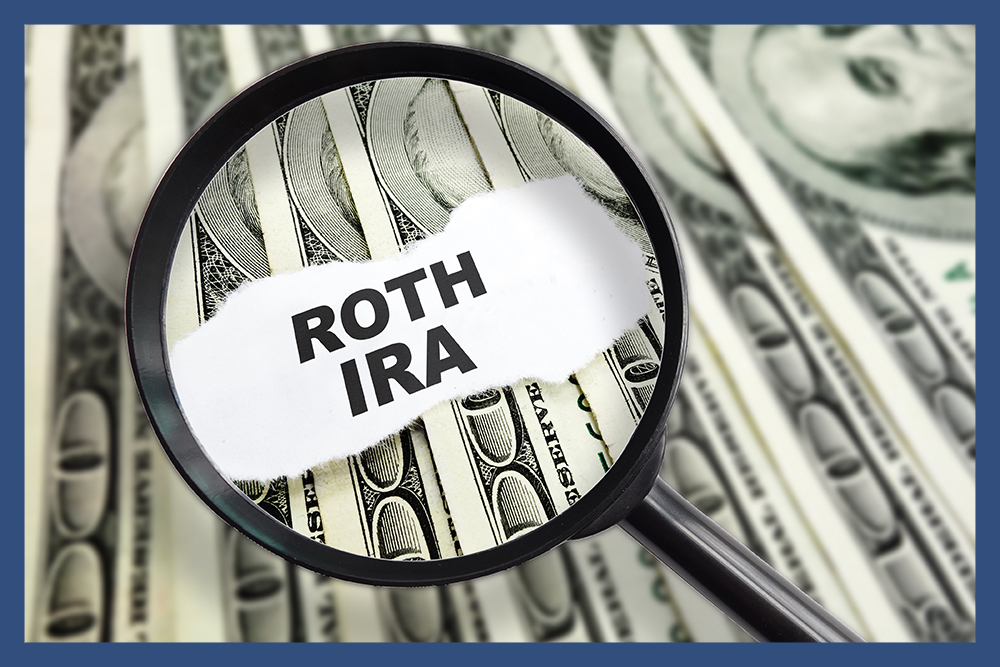President Joe Biden recently announced his individual tax proposals. These changes include a 39.6% long-term capital gain tax rate, the elimination of the stepped-up basis on death, as well as modifications to the estate tax, gift tax and generation-skipping tax provisions of the tax law. As a retirement saver, there are a few things you should know about these changes and actions you may want to consider taking with your assets.


Most retirees plan for their tax rates to be higher in the future, which can be expected to be true based on the new proposal. By converting from a traditional IRA to a Roth IRA, you can lock in the current tax rate. According to financial advisors, annual Roth IRA conversions rather than total account conversions is generally a better decision for retirees in lower tax brackets.


The SECURE Act changed the way beneficiaries have to take their distributions. Prior to the SECURE Act being signed into law, a beneficiary could take their required distributions throughout their life. Now, all funds have to be distributed by the end of the tenth year, which could cause some beneficiaries to pay more taxes due to the distributions pushing them into a higher tax bracket. If you pay the income tax today the heirs will pay less taxes later. The extent the taxes are paid can also reduce your estate by the tax paid, which reduces the taxable estate if your estate is over the proposed estate exemption amount.


With the new proposal, an increase of the top tax rates on personal income (from 37% to 39.6%), capital gains (from 20% to 39.6%) can be a good decision for high-income individuals to consider accelerating income. While this isn’t an appropriate decision for all taxpayers, it can be smart for some.


Additional changes that should be planned for are the For the 99.5% Act and Sensible Taxation and Equity Promotion Act of 2021. These both impact the amount of estate taxes an individual can pass tax-free at death, as well as alter the effectiveness of common estate-planning techniques used currently. The proposed changes of these acts include:
- Estate exemptions and rates: The For the 99.5% Act decreased the estate exemption to $3.5 million, which reduces the exemption amount by over $8 million. It also increases estate tax rates and creates a series of graduated tax rates with the highest rate at 65%.
- Lifetime gifts: This exemption would now be limited to $1 million.
- Annual gifts: The act proposes limits to an individual’s ability to make annual gifts to cumulative amounts equal to twice the annual exclusions for certain types of gifts, including gifts in trust.
- Gain recognition on death: Under the new act, the estate would be recognized as a gain on the property passing at death. Essentially as if it were sold, causing the gain to be subject to income tax at that time. It would also cause gain recognition on property transferred by a lifetime gift, now requiring certain trust to pay capital gains tax on trust property periodically.

The best thing you can do now is review your circumstances and reevaluate your retirement plan. When it comes to effective retirement planning, you have to figure out the amount of core capital you’ll need to maintain a comfortable lifestyle.
Retirement Income Planning with CKS Summit Group
The key to managing your retirement taxes is not to wait until retirement to start planning – which as you can see, is no easy task.
Our focus is to bring you fresh new ideas for your retirement income. Our cutting edge tactical portfolios help our clients achieve safe, healthy growth of their savings and preservation of their principal balance.
We design plans which are specifically structured to limit downside stock market risk. This allows us to protect our client’s assets while providing them with strategies for achieving effective tax reduction and inflation protection.
It’s best to seek the advice of a financial advisor with experience in designing tax-efficient wealth-management plans. To learn more about tax-efficient strategies and what options may be the best for you, contact CKS Summit Group today.



